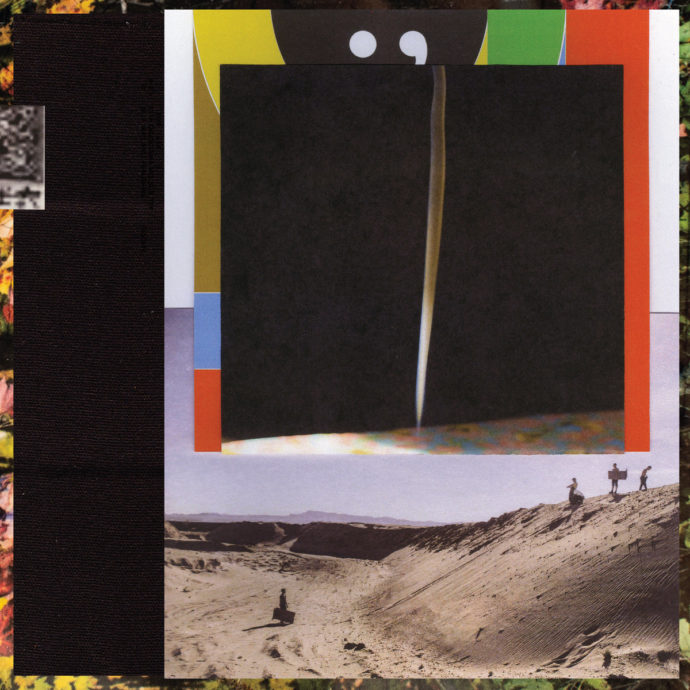Released through Jagjaguwar records, I,I is Bon Iver’s fourth studio album and Vernon’s eighth produced project. 22, A Million, had undoubtedly redirected the band’s sound, and left many listeners excited and confused. Their acoustics and hush hush vocals in Bon Iver (their self-titled second album) had awarded them Grammys for best new artist and best alternative music album in 2012. One would think Vernon would stay the course and delve deeper into the acoustic. Instead, the band evolved and entered the world of folktronica, which, in turn, has broadened their capabilities. This attempt awarded them further acclaim worldwide. That being said, I,I is not an attempt at delving deeper but an expedition of broadening, of stretching even further the capabilities of Vernon’s flagship.
Bad news first: it seems as though the band tries to include as much as possible in as short a time as possible. Aaron Dessner, James Blake, Jenn Wasner, Bruce Hornsby, Moses Sumney, and Andrew Broder all collaborated with the band on this album. Obviously, Vernon’s approach has been one of inclusion, yet where one expects multitude of outcomes, the album itself is under 40 minutes long and the listener has a hard time connecting thematically one song to the next. The album does seem to transition appropriately sound-wise, yet a clear concept seems missing. Indeed, this album has a free form feel that sometimes stretches itself too far or not enough depending on the complexity of the song. One often expects the dissonance and abstractness of a track to welcome the listener to the sound of an album, especially one as short as I,I. While this is achieved in songs like “Holyfields,” and “Jelmore”, they can come across as obnoxiously simplistic, given the sheer number of participating components.
One may decipher this album as a work of self-discovery or, as Will Schube from GQ put it, “A celebration of what it means to be human”, however, it can be argued that this is the case with all albums, all music and although correct in estimation, the abstract difference between each song seems to suggest a different meaning for each which may overwhelm the listener, especially as Vernon has taken poetic liberties in attempting to blend the English language.
Many songs serve as dreamy intermissions which, transitioning, swell into classics amongst the already revered Bon Iver canon. “Hey Ma”, “Naeem II”, and “Salem” are these tracks. Placed correctly within the framework, these songs launch the listener away from a grounding of wavy, sometimes fluid sometimes shaky experimentation. Justin Vernon’s preachiness, appearing at first somewhat forward, rids the jazziness and obtuseness of tracks such as “Sh’Diah” and “RABi” of their blindness. Melding I with we, you with me, Vernon melds the spaces in between words in an attempt to universalize lyric with sound. Evidence – and this is almost a necessity if one wishes to enjoy the album entirely – can best be found in the music videos of each song, lyrical or “official”.
The totality of the album achieving just under 40 mins in length, one is surprised by its variety of sound. In “We”, first nation tribalism is evoked through drumming and chanting. “Man (Like You)” smacks of southern gospel, and “Jelmore” sounds as though it belongs as the menu music for an 8-bit videogame. Vernon’s voice can be understood as an attempt to understand the world around him while the choirs, pianos, synths and horns interact as his environment. “Marion”, the album’s 10th track leaves the listener sleepy and expectant, as if the optimism and lightness of the album had reached its zenith and a mighty crash of symbols is on the horizon. The band refuses this and their sound remains suspended in the sky.
Rating: 6.5/10

